Is this relation a function?
{(5,-1),(2,0),(2,2),(5,3)}
NON-FUNCTION!!!!!!!!!
Factor x2 - 5x + 6
(x-2)(x-3)
Use function notation to write an equation for "Each number is assigned to the number that is 3 more than its square."
F(n)= 3 + n2
What is the vertex?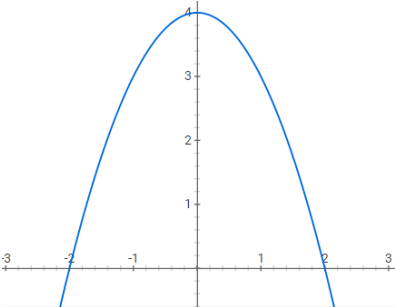
y-intercept: (0, 4)
What is the domain?
{(2,1),(3,2),(4,3),(5,-10)}
{2,3,4,5}
Factor x4 + x2
x2(x2 + 1)
Use function notation to write an equation for "Each number is assigned to the number that is 5 less than double the number.
F(n)= 2n - 5
g(x)=-3x+7;find g(x-3)
g(x-3)= -3x+16
What is the domain?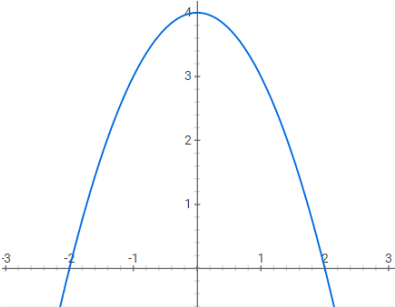
(-∞, ∞)
Is this graph a function?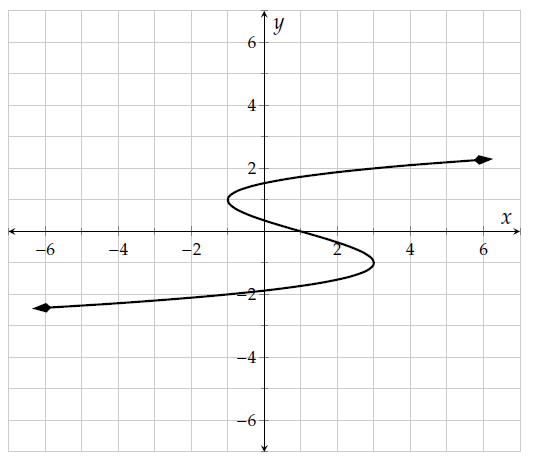
NON-FUNCTION!!!!!!!!!
Factor 6x3 - 9x2 - 4x + 6
(2x - 3)(3x2 - 2)
Alec bought a used car for $7600. The car’s value decreases at a constant rate each year. After 10 years, the value decreased to $3600. Find the amount that the value decreases each year.
slope = -400
G(x)=4x+4; find G(x)+4
G(x)+4 = 4x+8
What is the range?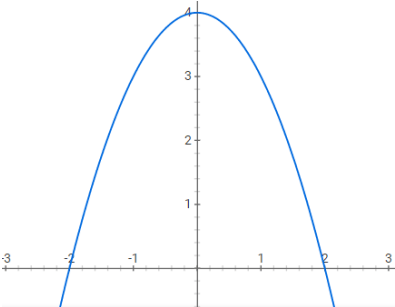
(-∞, 4]
What is the domain?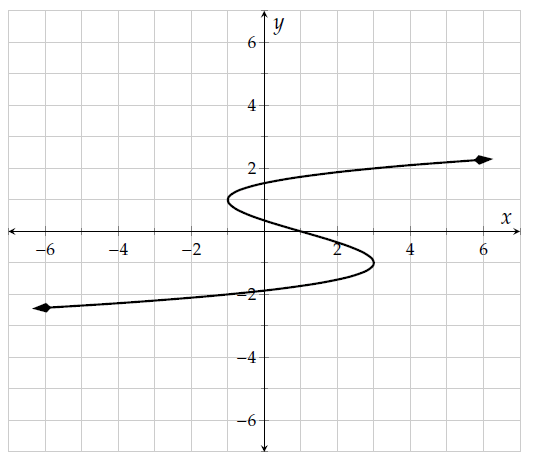
(-∞,∞)
Factor 4x3 - 4x2 - 120x
4x(x - 6)(x + 5)
Alec bought a used car for $7600. The car’s value decreases at a constant rate each year. After 10 years, the value decreased to $3600. Find the range of the function in this context.
[0, 7600]
F(x)=7-5x2; find F(2)
What is F(2)= 7-20 = -13
What are the zeros of this function?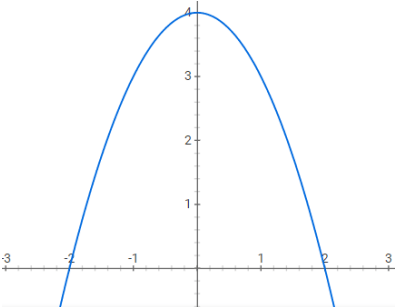
x-intercepts: (-2,0) and (2,0)
What is the range?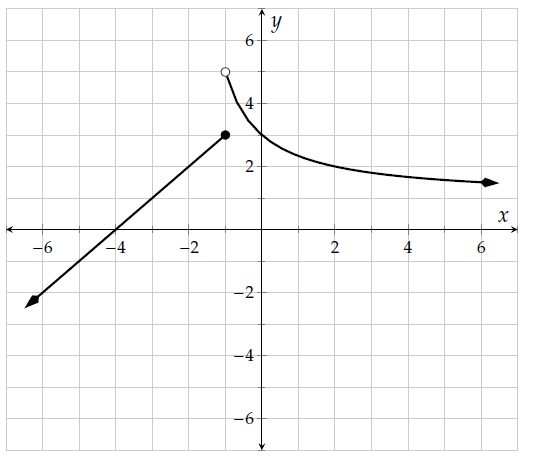
(-∞,5)
Factor x4 - 81
(x - 3)(x+3)(x2 + 9)
Alec bought a used car for $7600. The car’s value decreases at a constant rate each year. After 10 years, the value decreased to $3600. Find the domain of the function in this context.
[0,∞) or [0,19]
g(x)=4x2-3; find g(x+2)
g(x+2)=4(x2+4x+4)-3 = 4x2+16x+13
Solve f(x) = 3 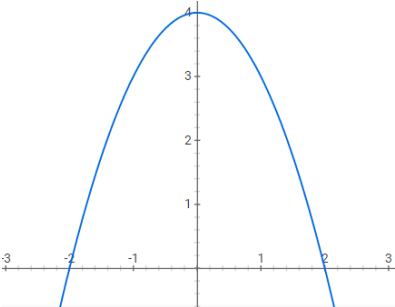
{-1, 1}